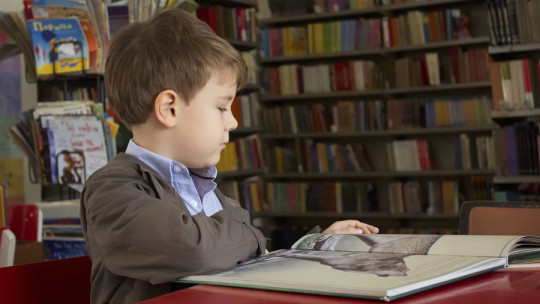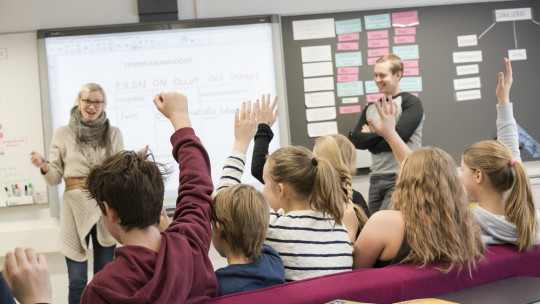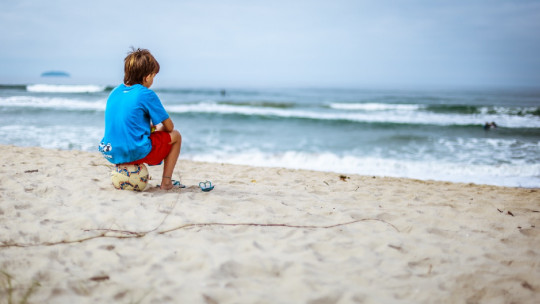
Have you ever wondered which are the best educated countries in the world?
Every three years, a worldwide test is conducted to assess the reading, math, and science skills of 15-year-old students. This exam is carried out through the Organization for Economic Cooperation and Development (OECD) program.
From this data, it is possible to see in which nations the educational systems used to train students work best.
The best international education
There are several tools through which the educational quality that countries enjoy can be measured. The PISA tests (acronym for Program for International Student Assessment, in English), developed by the OECD are one of the best methods to evaluate the countries with the best education in the world.
In this article we will see which are the countries with the best education in the world, what the PISA tests consist of as a method of measuring the best education worldwide, and finally we will review some curiosities.
Countries with the best education in the world
The last report prepared by the OECD, through the so-called PISA tests, was carried out in 2018 (it must be taken into account that these tests are carried out every 3 years), and established the following ranking of the countries with the most education, according to the three skills: reading, mathematics and science.
1. China
China leads the ranking in all three specialties; reading, math and science.
2. Singapore
This other Asian country that appears in the ranking holds the position in all three specialties.
3. Macau
Macau is an autonomous region on the southern coast of China and also occupies the position, in this case third in the ranking, in the three specialties.
4. Hong Kong and Estonia
In fourth position, Hong Kong excels in reading and mathematics. At the science level, the first non-Asian and European country appears on the list in fourth position: Estonia.
5. Estonia, Taiwan and Japan
The European country of Estonia continues to be part of the ranking – at fifth position – in terms of reading ability. Taiwan ranks fifth in math skills, and Japan ranks fifth in science skills.
6. Finland and Japan
The second European country that appears on the list is Finland. Finland occupies sixth position in the ranking of the countries with the best education in the world regarding reading and scientific skills Japan occupies this same position in terms of mathematics skills.
7. Canada and South Korea
The first American country that appears in the ranking is Canada It holds seventh place for reading ability, worldwide. South Korea ranks sixth in mathematics and science competencies.
8. Ireland, Estonia and Canada
The next European country that appears on the list of the best educated countries in the world is Ireland, as the eighth best country in the world in terms of reading education.
Estonia is ranked the eighth best country in the world for mathematics education, and Canada the eighth best country in the world for science education.
9. South Korea, Netherlands and Hong Kong
South Korea obtains the ninth best education ranking in the world in terms of reading Netherlands for mathematics and Hong Kong for science.
10. Poland and Taiwan
Poland occupies the tenth position in the ranking of countries with the best education in the world in terms of letters and mathematics. Taiwan remains the tenth best country to study science.
The PISA tests
Here we have seen the top 10 positions in this ranking of the countries with the best education in the world because they have greater relevance. Nevertheless, The list is much longer and classifies all the countries that have carried out the PISA tests
As can be seen, Asian countries predominate, where their culture of effort, dedication and the value of knowledge is widely known.
On the other hand, the PISA tests consist of standardized exams that, since 2000, have been carried out every three years in different countries around the world. In these exams, secondary school students (15 years of age) They are evaluated in the areas of reading, mathematics and science
The objective of these PISA tests is to provide comparable data and information that, in addition to developing a world ranking, aims to develop improvements in education policies, taking into account that these tests evaluate the country’s educational system, not each student specifically.
Curiosities about the PISA tests
Here we leave you some curiosities about the PISA tests:
1. Prior application
The final PISA report, which is prepared through the tests, It is carried out in countries where their government and educational institutions have requested it
2. Age requirement
The exams are only taken by students 15 years of age, regardless of the school level where they are.
3. Type of problems
The exams to be solved are planned with problems contextualized in relevant social or cultural aspects
4. Avoidance of bias
When evaluating these three specific areas: reading, mathematics and science, the idea is not to consider any other variable aptitude of the student to avoid bias in the results.
5. What is evaluated?
The areas evaluated are considered relevant to the personal, social and economic well-being of a country, therefore The ability to retain data is not measured, but rather the aim is to evaluate the student’s critical thinking as well as the abilities to understand and solve problems based on solid and basic knowledge, supposedly taught in schools and institutes.
The secrets of the best education in the world
Behind these results, there is a series of data that is present and that is worthy of analysis. The history of each country greatly influences the type of education (and of course learning by the students) that takes place in the classrooms.
For example, Estonia, the first European country to appear on the list, is a country considered young, since it did not obtain its autonomy from other nations until 1917, mainly Sweden and Russia. In this country, letters and culture are appreciated.
Another important piece of information is that related to Government investments in education as well as efficient use of money. Valued, well-paid and satisfied teachers are also usually key elements.
The teaching methods themselves also have weight, as well as knowing how to transmit knowledge and love for it. In any case, the synthesis of this data would be that a good education will always be key to the advancement and development of a society, whether on a social, technological, scientific or even human level.








